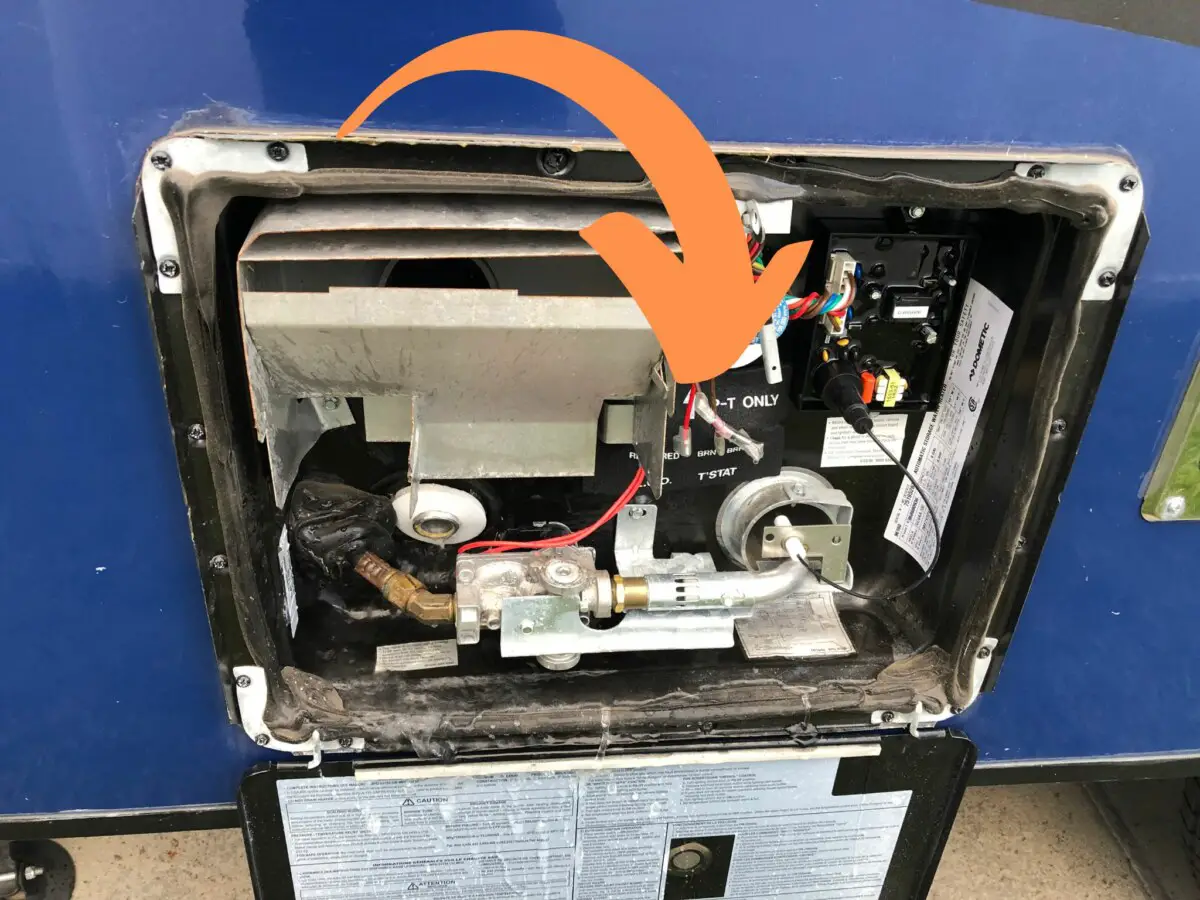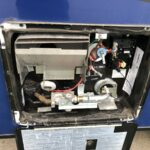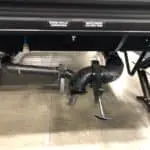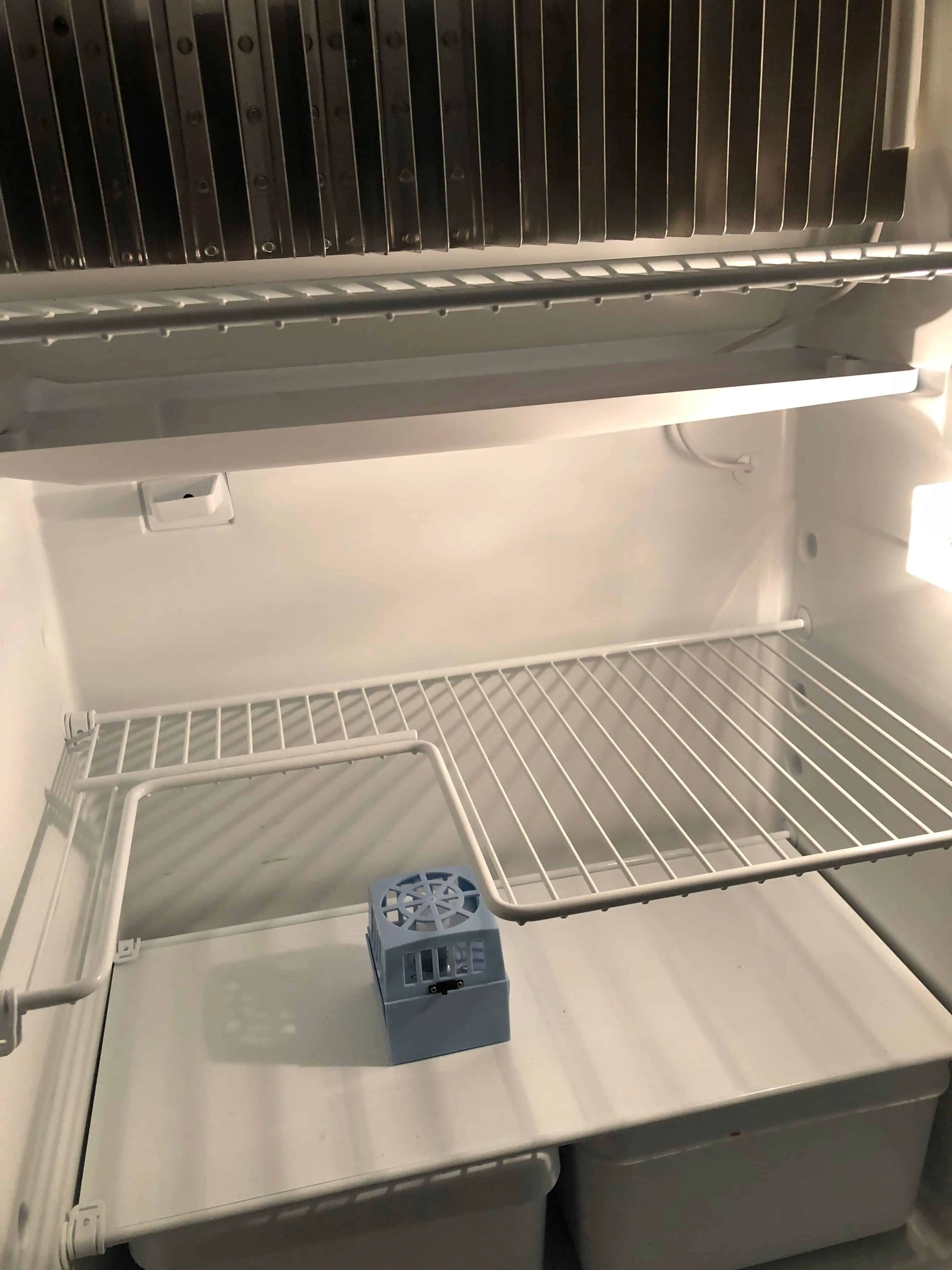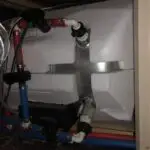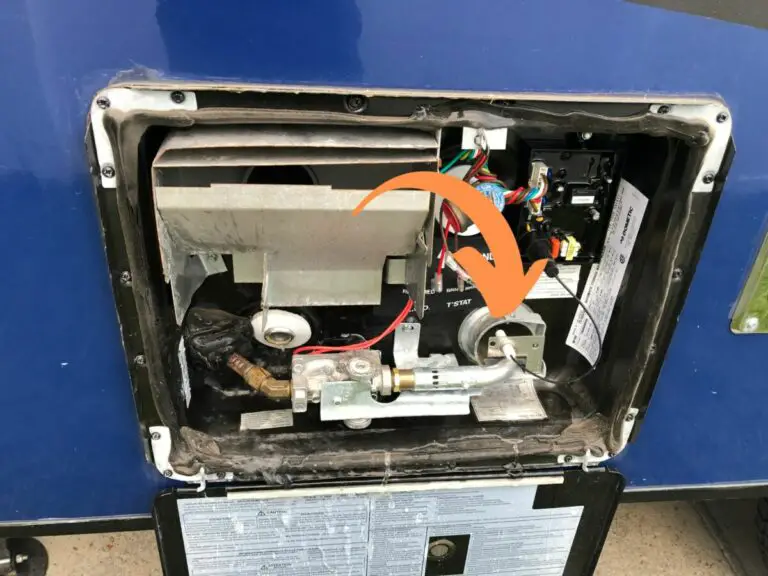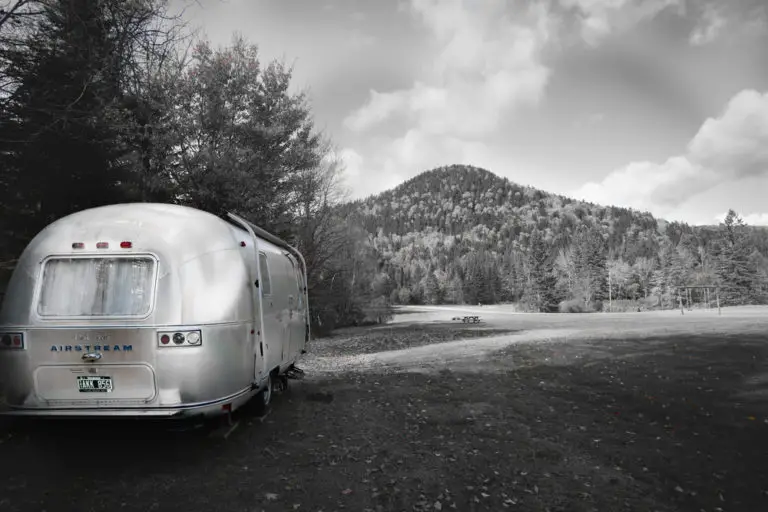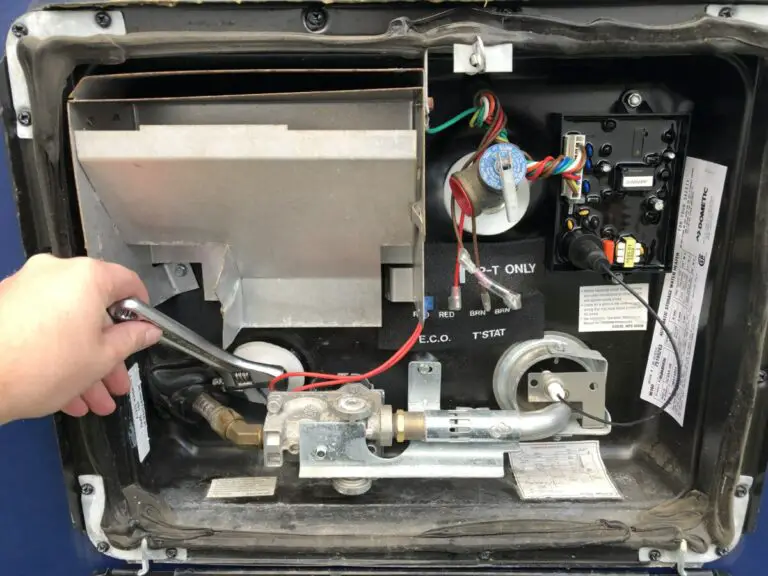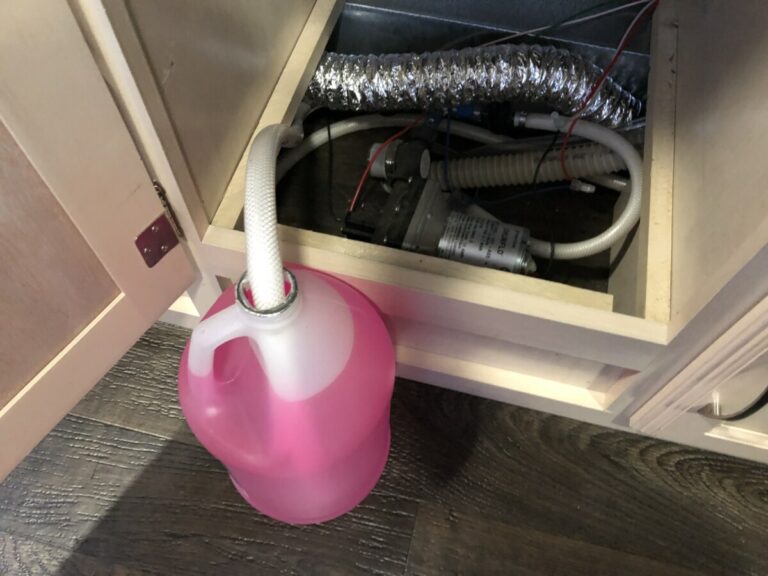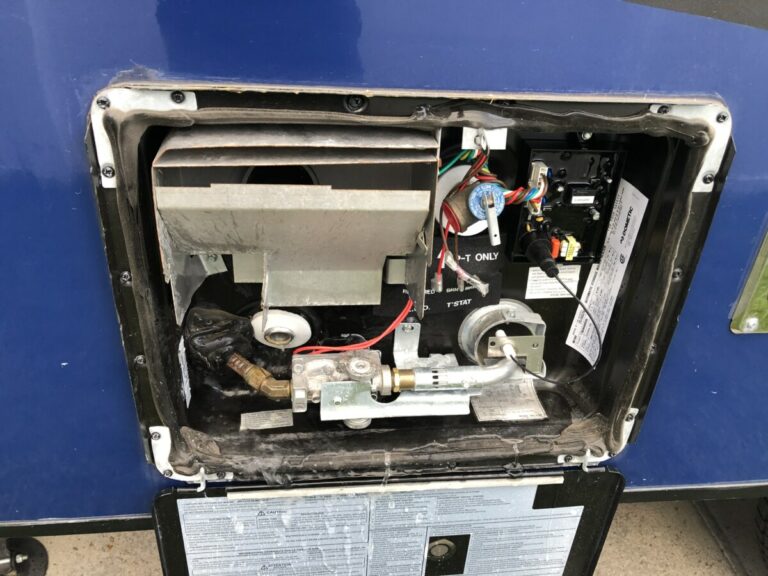13 Reasons Your RV Water Heater Keeps Tripping The Breaker: Troubleshooting & Fixes
Embarking on a road trip in your RV can be an exciting adventure, offering the freedom to explore new destinations while enjoying the comforts of home. However, a common issue that you may encounter during your journey is your RV water heater tripping the breaker. Such a problem can disrupt your plans and leave you without hot water when you need it the most.
An RVs water heater may trip the circuit breaker because of a thermostat, heating element, and electrical panel. Damaged wiring is another reason why an RV water heater breaker trips and will need a professional to repair it. Troubleshooting in some cases need an electrician or RV technician.
When your RVs water heater starts acting up, causing the breaker to trip, you must find the reason and fix it before it worsens and cause greater damage that may lead to expensive repairs. Finding why the water heater is tripping the breaker is tricky, but the common places to check it will make finding the problem easier.
Common Causes of RV Water Heater Breaker Tripping
When your RV water heater breaker trips, it can be frustrating. However, understanding the common causes can help you troubleshoot and fix the problem. In this section, we will discuss some of the leading factors that cause RV water heater breakers to trip.
Rust Causes Leaks On Wiring
RV water heaters generally last for a few years if maintained even longer. Unfortunately, a water heaters tank rust due to leaks and different elements in the water. A water tank may leak and get some wires wet, which can cause the circuit breaker to trip. Inspect your water heater tank for any leaks, especially where there is visible rust and in areas with some wiring.
A Faulty Thermostat
RV Water heaters have an element that heats the water and a thermostat that regulates how hot the water becomes. A thermostat is like a switch that regulates the temperature; once the water reaches it, the thermostat switches the element off.
A thermostat normally lets the element heat the water to about 180 degrees, and the limit switch breaks the electrical current to the element. If the thermostat malfunctions, the element will overheat the water, and as a safety measure, the breaker will trip.
Many RV water heaters have two elements, each with a thermostat, and to avoid the electrical current overloading the breaker, only one heats at a time. If one thermostat is stuck in the open position and does not switch off while the other turns on the circuit breaker overloads, and the breaker will trip. Use a multimeter to measure whether one or both thermostats are functioning correctly.
Here is how you troubleshoot a possible faulty thermostat:
- You should have zero ohms reading with an open thermostat.
- A 0.5 reading for a closed thermostat is acceptable. Otherwise, you have a bad thermostat that needs replacement.
- If the thermostat works properly, remove the wires from its terminal screws.
- Set the multimeter to continuity.
- Touch the screws with the multimeters’ two probes, one on each terminal.
- If there is no continuity, the element is faulty.
A Bad Heating Element
The water in the RV water heater uses an element that draws an electrical current to heat the water. The electrical current connects directly to the element, and if there is a water leak where the element screws in, it could cause the wires to make an electrical short causing the breaker to trip.
Rust that eats through the thread of the element or a perished seal is both possibilities for a water leak and why the RVs water heater breaker is tripping. Another possibility is that the element is malfunctioning and does not switch off, and the limit switch trips the circuit breaker to prevent serious damage. The multimeter will help you to see whether the element is faulty.
Perished Wiring
There is wiring that runs from the circuit breaker to the element and the thermostat, and often these wires are the cause of the breaker tripping. Wires perish over time, especially if it is close to a heat source like a water heater. Another factor to consider is pests. Rodents love taking a bite out of wiring, and if your RV has an opening for one of these critters to get in, it can sever some of the wires.
Whether exposure to heat or rodents caused the wires of the water heater system to sever those wires may be why there is a direct short that would cause the circuit breaker to trip. A wire with electrical current going through it is dangerous, and if you find any damage, it is best to use the services of an electrician. Remember to shut off the breaker to avoid injury if you want to fix it.
Another reason for the water heater circuit breaker tripping is damaged wires that run from the circuit breaker into the conduit that is there to protect it. Sometimes the wires are not thoroughly fished through the conduit and therefore exposed to other elements that could damage the wires, causing the circuit breaker to trip.
Finding a broken wire in the wiring harness leading from the circuit breaker to the heater is not easy, and you will need a wiring diagram of the water heating system. Most of the time, it is not a DIY project, and you may need to find an electrician to assist you or take it to an RV specialist.
There Is A Water Leak
Water leaking from a water-heating tank of an RV could have devastating consequences. Depending on where the tank leaks and how big the leak is could be a reason why your circuit breaker trips. As previously mentioned, water and electricity do not mix. If the wires at the water heater element or thermostat get wet, it may be the reason why the circuit breaker trips.
Another reason for the circuit breaker to trip is that the water leak caused the water to spread to other parts of the RVs wiring, producing a short that will trip the circuit breaker. If the wiring is submerged in water or wet, the current that runs through the wire produces heat. Water and heat cause wires to perish to the point that it loses their isolation, causing the breaker to trip.
Circuit Breaker Malfunction
There are various reasons why a circuit breaker can reach its limit and become faulty. A circuit breaker is a component least checked, and when the water heater trips the circuit breaker, you should monitor its situation regularly.
Like other appliances or electrical components, a circuit breaker declines after a few years. As per the Consumer Product Safety Commission, a circuit breaker should last 30 years. The longevity of a circuit breaker is subject to its voltage and power ratings. External factors may cause it to malfunction before its workability expires.
Ensure that the breaker size is correct for the RVs water heater. The element draws more current when the water is cold to bring it to temperature and will use the maximum watts the element produces to heat the water. If the element requires more watts than the breaker provides, it will trip it. To avoid the circuit breaker tripping, consider the watts and the size of the circuit breaker for the RVs water heater.
If you have a circuit breaker that is too big and provides too much current, it will not detect if there is a problem with the heater or the wiring, and it will not trip the breaker. If the breaker does not trip when there is a problem, it could lead to a fire or injury.
Faulty Appliances On The Same Breaker
In many cases, the tank does not have a dedicated breaker to the water heater alone and shares it with other appliances that run from the same circuit breaker. It is a good idea to keep one circuit breaker just for the heater to ensure that there is no electrical current overload on the circuit breaker.
Finding the fault of why the circuit breaker tripped could be as simple as an appliance plugged in on the same circuit breaker and drawing too much power from it, causing it to trip. Another possibility is that the recently added appliance is faulty and has an electrical issue. The RV wiring diagram should break down everything running on that circuit breaker.
If you find an appliance that should not be on that breaker, remove it and see if it solves the problem because it may need more power than the breaker supplies. If appliances are on the diagram, unplug them anyway and see if it resolves the breaker tripping. If there is more than one, unplug it one appliance at a time until you find the one causing the breaker to trip.
If you find an appliance that trips the breaker, have it repaired or replaced before reconnecting it to the breaker outlet. If an appliance was the cause, it eliminates the water heater being the reason why the breaker is tripping.
Faulty Heating Element
A faulty heating element can cause the breaker to trip. This occurs when the heating element has burned out or developed a short. To check the heating element, you can use a multimeter to test for continuity. If the heating element is faulty, it will need to be replaced.
Damaged Thermostat
A damaged thermostat can also cause the breaker to trip. The thermostat’s function is to control the temperature of the water in your water heater. If it’s not working correctly, it can allow the water to become too hot, causing the breaker to trip. You can test the thermostat using a multimeter to ensure it’s functioning correctly. If it isn’t, you’ll need to replace it.
Short Circuit in Wiring
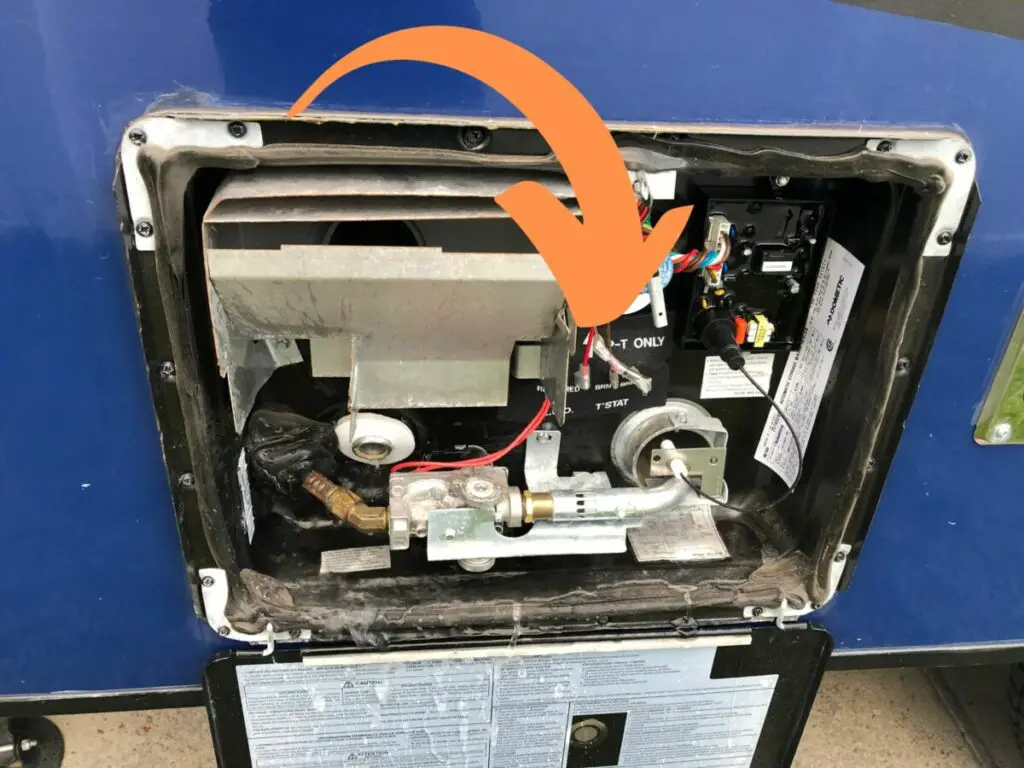
A short circuit in the wiring can be another cause for the breaker to trip. Inspect the wiring for any visible signs of damage, such as frayed wires or exposed conductors. If you find any issues, you’ll need to repair or replace the damaged wiring.
Electrical Overload
An electrical overload occurs when the RV’s electrical system is overloaded, causing the breaker to trip. This can happen if you have too many appliances running at once, drawing more power than the system can handle. To fix this, turn off non-essential appliances and reset the breaker.
Ground Fault
A ground fault occurs when an electrical current unintentionally flows through the grounding system, causing the breaker to trip. To identify a ground fault, you can use a ground fault circuit interrupter (GFCI) tester to check for any leaks in the electrical system. If you find a ground fault, you’ll need to fix the issue to prevent the breaker from tripping.
Corrosion in RV Water Heater
Lastly, corrosion in your RV water heater can cause the breaker to trip. Over time, the water heater’s tank can corrode, causing the electrical components to malfunction. Inspect the water heater for visible signs of corrosion and replace the unit if necessary.
How to Troubleshoot RV Water Heater Breaker Issues
What Tools You Need To Troubleshoot An Electric Water Heater
It is recommended to have a few tools and patience to discover why the RVs water heater trips the breaker.
Here is what you need to troubleshoot your RVs water heater:
- Most places where the problem may be located are dark, and a flashlight is handy to give you a clear view in those tight and dark spots.
- A manual or a wiring diagram of the RVs water heater system will save time and give you a better indication of where to locate the different places where the fault may be.
- Basic tools like plyers and screwdrivers will be necessary to get access and remove certain parts. A basic toolbox should do just fine.
- Normally there is still water in the heating system, and a few towels is a good idea just in case you deal with some water leaking.
- Wiring is complicated and something you should not work with if you do not have some knowledge, and for that, a multimeter is necessary.
Once you have everything on the list, you can troubleshoot why your heating system is tripping the breaker. It is good to have information about where the problem might be before you start tearing the water heater apart.
Safety Is Important When You Perform A Troubleshoot
When you troubleshoot to find the cause for the water heater breaker tripping, you should always proceed with caution because you are working with electricity that could injure or cause a fire. Be sure to take all the necessary precautions to stay safe, whether it is the thermostat, an element, a water leak, or another appliance.
If you have a water leak or have to drain the water, ensure that you have a towel or a cloth to absorb the water so that it does not get to any electrical wiring, and will prevent you from slipping. Use a wiring diagram before pulling on the wire because it could lead to bigger problems that are difficult to fix. A good suggestion is to source the help of an electrician or RV technician to assist with troubleshooting.
Inspect the Heating Element
The first step in troubleshooting your RV water heater is to inspect the heating element. Turn off the power to the water heater and use a multimeter or voltmeter to test the resistance of the heating element. If you find that the element is damaged or has a resistance that is out of the specified range, it will need to be replaced.
Check the Thermostat
Next, examine the thermostat to ensure it is functioning properly. With the power still off, use your multimeter to check the thermostat’s connections for continuity. If there is no continuity or if you notice any signs of damage or wear, the thermostat should be replaced.
Examine Wiring and Connections
Faulty or loose wiring connections can cause your RV water heater to trip the breaker. Inspect all of the connections, ensuring they are secure and free from corrosion. If you come across damage or frayed wires, replace them or have an electrician help you with the repairs.
Determine Electrical Load
Your RV’s electrical system may be overloaded, causing the breaker to trip. To determine the load, add up the wattage of all the devices connected to the circuit. If the total exceeds the circuit’s capacity, you may need to either reduce the load or upgrade your electrical system.
Test the Circuit Breaker
A faulty circuit breaker can also be the cause of your RV water heater issues. To test if it’s the problem, turn off the power and use your multimeter to check the breaker for continuity. If there is no continuity or if the breaker is visibly damaged, it will need to be replaced.
Identify Ground Faults
Ground faults can cause the breaker to trip as well. Check for damaged wiring or appliances that may be causing a short circuit. Use a ground fault circuit interrupter (GFCI) tester to identify any issues. If a ground fault is detected, identify the source and address the problem accordingly.
Examine for Corrosion
Finally, inspect your RV water heater for signs of corrosion, which can lead to electrical issues – causing the breaker to trip. If you find corrosion, clean the affected parts, and if necessary, replace damaged components.
By following these steps and using the right tools, you should be able to identify the cause of your RV water heater breaker issues and take the necessary steps to fix the problem, ensuring a comfortable and safe experience on your next adventure.
Fixing RV Water Heater Breaker Problems
Replace Heating Element
If your RV water heater’s breaker keeps tripping, the heating element could be the cause. To fix it, first, turn off the electricity and water supply to the hot water heater. Unscrew the heating element and remove it from the water heater. Inspect it for damage and replace it with a new one if needed. Reinstall the new electric element, making sure it is securely in place. This should resolve the problem if the heating element was the cause.
Install a New Thermostat
A faulty thermostat might be causing your RV water heater to trip the breaker. To install a new thermostat, begin by turning off the power supply to the hot water heater. Remove the old thermostat by gently prying it off the mounting clips. Attach the new thermostat according to the manufacturer’s instructions and ensure it is securely mounted. Turn the power back on to start enjoying hot water again.
Repair or Replace Wiring
Faulty or damaged wiring can lead to electrical issues in your RV, including water heater breaker problems. Inspect the wiring for signs of damage, such as frayed insulation or loose connections. Repair or replace the wiring as needed, ensuring all connections are secure and properly insulated.
Manage Electrical Loads
Overloading your RV’s electrical system can cause the water heater breaker to trip. To manage electrical loads, try using only essential appliances simultaneously, and avoid using high-wattage devices when the water heater is in use. This can help prevent additional strain on your circuit breaker.
Replace Circuit Breaker
A worn-out or faulty circuit breaker might be causing your RV water heater issue. First, turn off the main power supply to your RV. Carefully remove the old breaker from the panel and replace it with a new one, following the manufacturer’s instructions. Turn the main power back on and test your water heater to see if the problem is resolved.
Address Ground Faults
Ground faults occur when electrical current leaks to the ground, causing the breaker to trip. To address this issue, check for damaged or frayed wiring. Inspect the heating element, thermostat, and other components for signs of wear or damage. Repair or replace any faulty parts and ensure proper grounding of your RV’s electrical system.
Clean and Maintain Water Heater
Regular RV maintenance, including cleaning and inspecting the hot water heater, can help prevent issues that cause the breaker to trip. Remove sediment buildup and mineral deposits, and check the anode rod for signs of corrosion. Replace any worn-out components during your RV repair routine to help keep your water heater functioning optimally.
Preventing Future RV Water Heater Breaker Trips
Regular Water Heater Inspections
As an RV owner, it’s essential to perform regular inspections of your RV water heater. This will help you identify any potential issues before they become significant problems and cause a breaker trip. Check for leaks, loose connections, and ensure the heating element and thermostat are functioning correctly.
Proper Electrical Load Balancing
Balancing your RV’s electrical load is key to preventing breaker trips. Be mindful of the number of appliances you are using simultaneously and avoid overloading the system. When at an RV park or using a travel trailer, ensure your RV is connected to a dedicated circuit to handle the electrical load safely.
Maintaining Circuit Breakers
Regularly inspect and maintain your RV’s circuit breakers to ensure they are in proper working order. Clean and lubricate the contacts as needed, and replace any worn or damaged breakers to prevent unexpected trips.
| Task | Frequency |
|---|---|
| Clean and lubricate contacts | Every six months |
| Replace worn or damaged breakers | As needed |
Check for Ground Faults Periodically
Ground faults can cause your RV water heater to trip the breaker. Periodically check for ground faults by using a multimeter to measure resistance between the heater’s grounding screw and the RV chassis. If you find a high resistance, investigate and fix the issue to prevent future breaker trips.
Keep an Eye on Corrosion
Corrosion can cause electrical connections to deteriorate, leading to breaker trips. Regularly inspect your RV water heater, electrical connections, and surrounding components for signs of corrosion. If you notice any, clean and repair the affected areas as soon as possible.
- Check for corrosion on:
- Heating element terminals
- Electrical connections
- RV chassis
By taking these steps to maintain and monitor your RV water heater and electrical system, you can help prevent future breaker trips and ensure your RV stays in top condition.
When to Call a Professional Electrician
In some cases, your RV’s water heater tripping the breaker could be a sign of a more serious electrical issue that requires the expertise of a professional electrician. It’s important to recognize when it’s no longer a simple DIY fix and when you need to consult an expert.
If you notice that your RV’s air conditioner, microwave, or other appliances are also causing the breaker to trip, it could be an indication of a larger electrical problem that needs to be addressed. Inconsistent performance or fluctuations in power supply could also be signs of an underlying issue with your RV’s electrical system.
Pay close attention to your fuse box. If you see any signs of burning, charring, or melted wires, this is a clear indication that you should call a professional electrician immediately. These symptoms can signal a potentially dangerous situation, and attempting to fix them without proper training could put you and your RV at risk.
A professional electrician will have the necessary tools and expertise to accurately diagnose and solve any electrical problems that may be causing your RV water heater to trip the breaker. They can also ensure that all parts of your electrical system are functioning safely and efficiently, giving you peace of mind as you continue your travels.
Remember, safety should always come first. When in doubt or when you’re unable to troubleshoot and fix the problem yourself, it’s always best to consult a professional electrician to handle your RV’s electrical issues.
Frequently Asked Questions
Why does the breaker keep tripping on my RV water heater?
There can be several reasons for the breaker to keep tripping on your RV water heater. Common causes include a loose wire connection, a short circuit, a ground fault, a faulty breaker, a damaged heating element, or an overheating issue. It is crucial to identify the reason and address the problem to prevent any possible damage to your RV’s electrical system.
What should I do if my hot water heater breaker keeps tripping?
If your hot water heater breaker keeps tripping, first turn off the electricity and unplug your RV from the shore power. Examine the breaker panel and test the breaker to determine if it is faulty or damaged. If it is working correctly, inspect the wiring connections, heating element, thermostat, and reset button for any signs of damage or loose connections. In case you find any issue, you should consult a professional technician to safely fix the problem.
Can a faulty thermostat cause the RV water heater breaker to trip?
Yes, a faulty thermostat can cause the RV water heater breaker to trip. If the thermostat is not functioning correctly, it may not regulate the temperature of your water heater properly. This can cause the unit to overheat, which can trip the breaker as a safety precaution. Make sure to inspect the thermostat, and if it’s not functioning properly, replace it with a new one to avoid further issues and ensure your RV water heater works efficiently.
Be the first to be notified about FREE tips, hints, coupon codes, and email-exclusive information. All for FREE!

